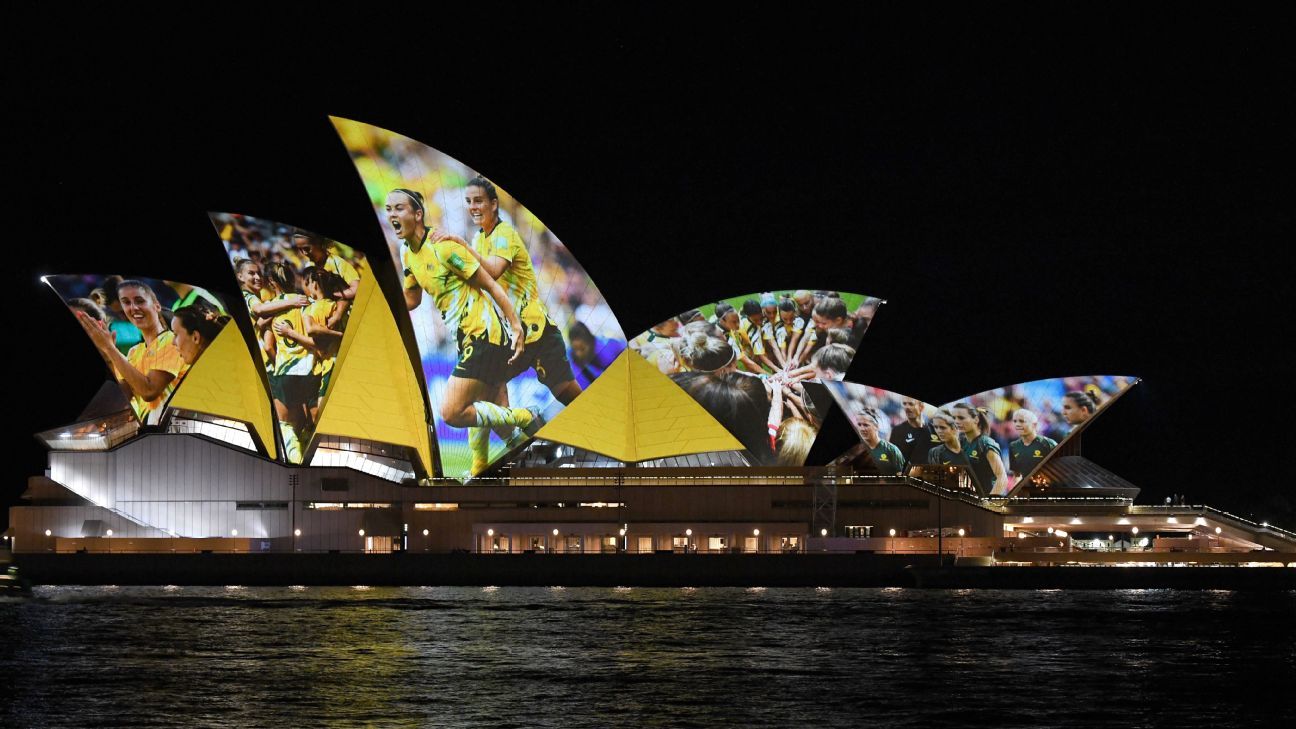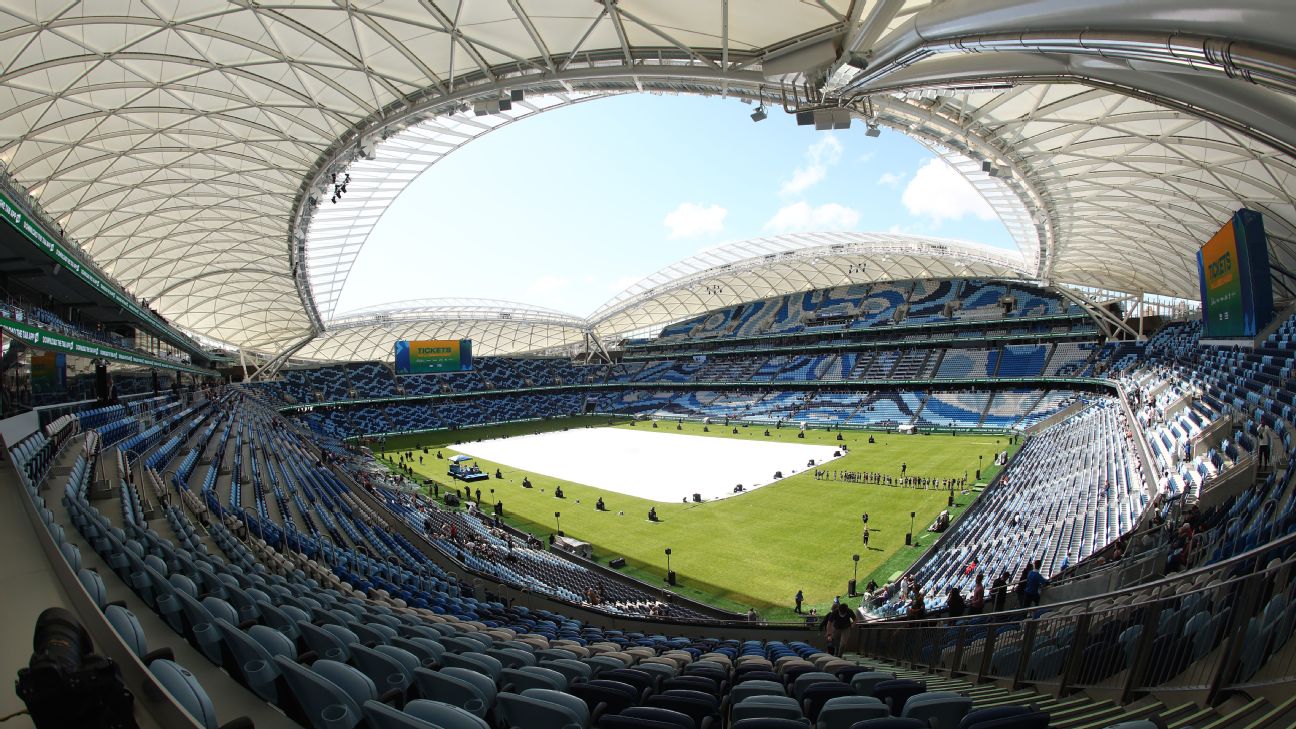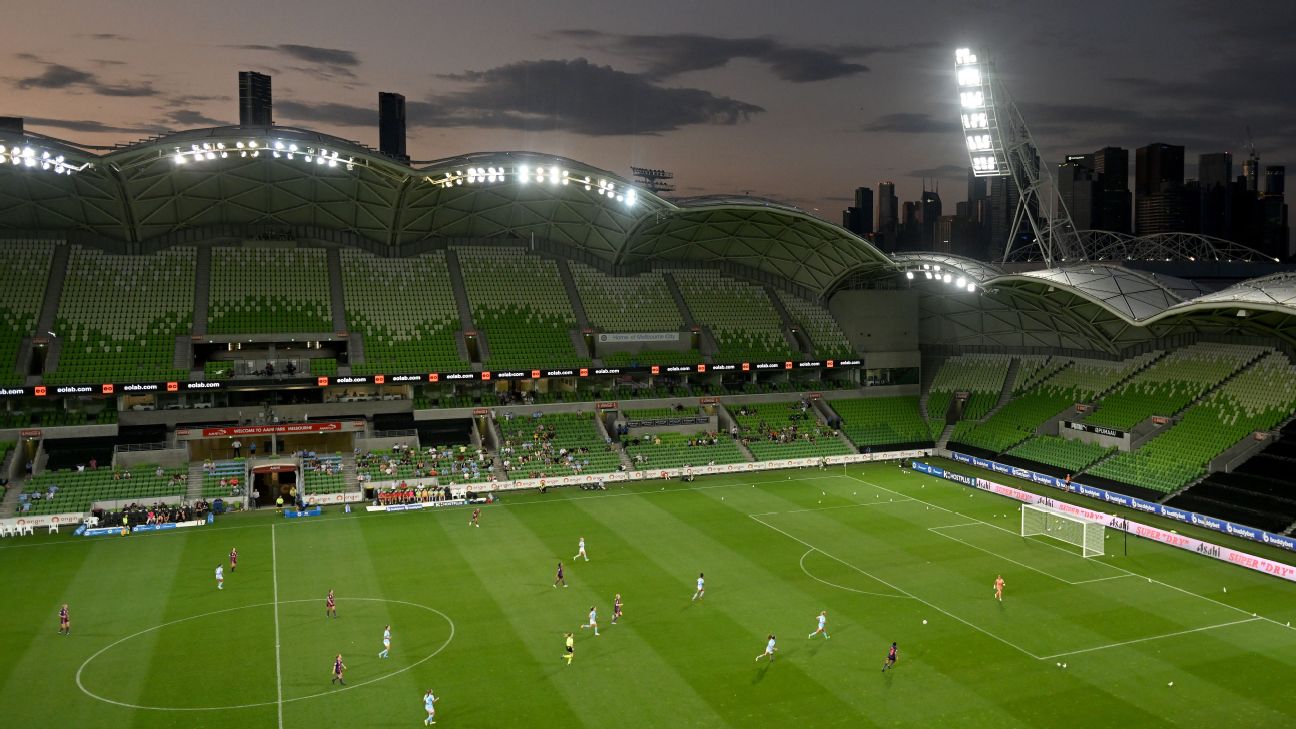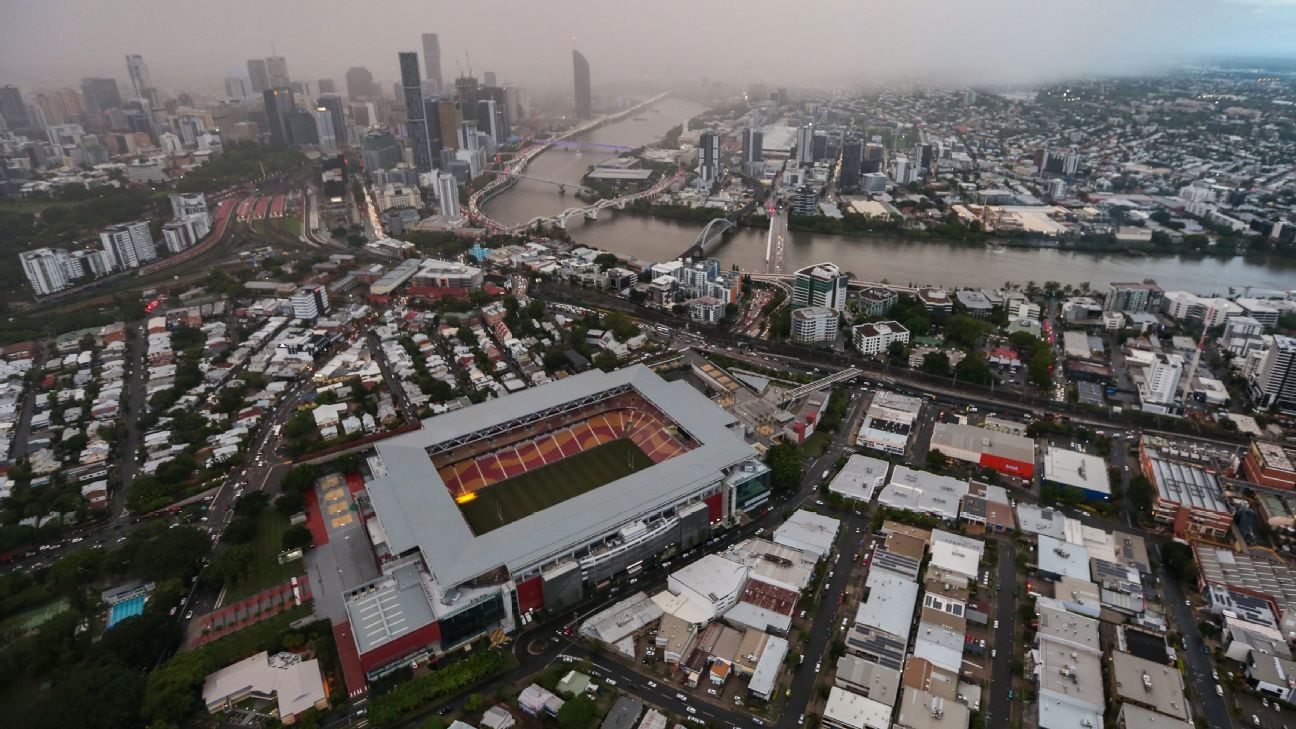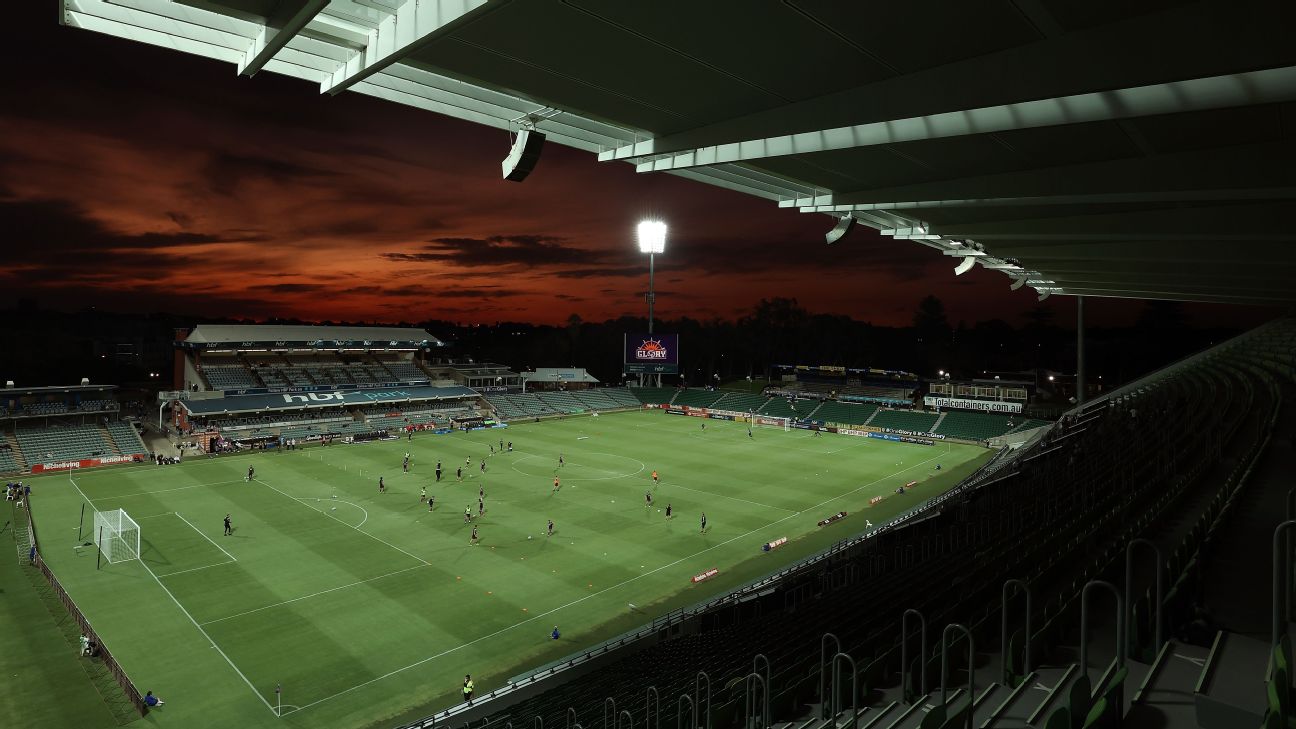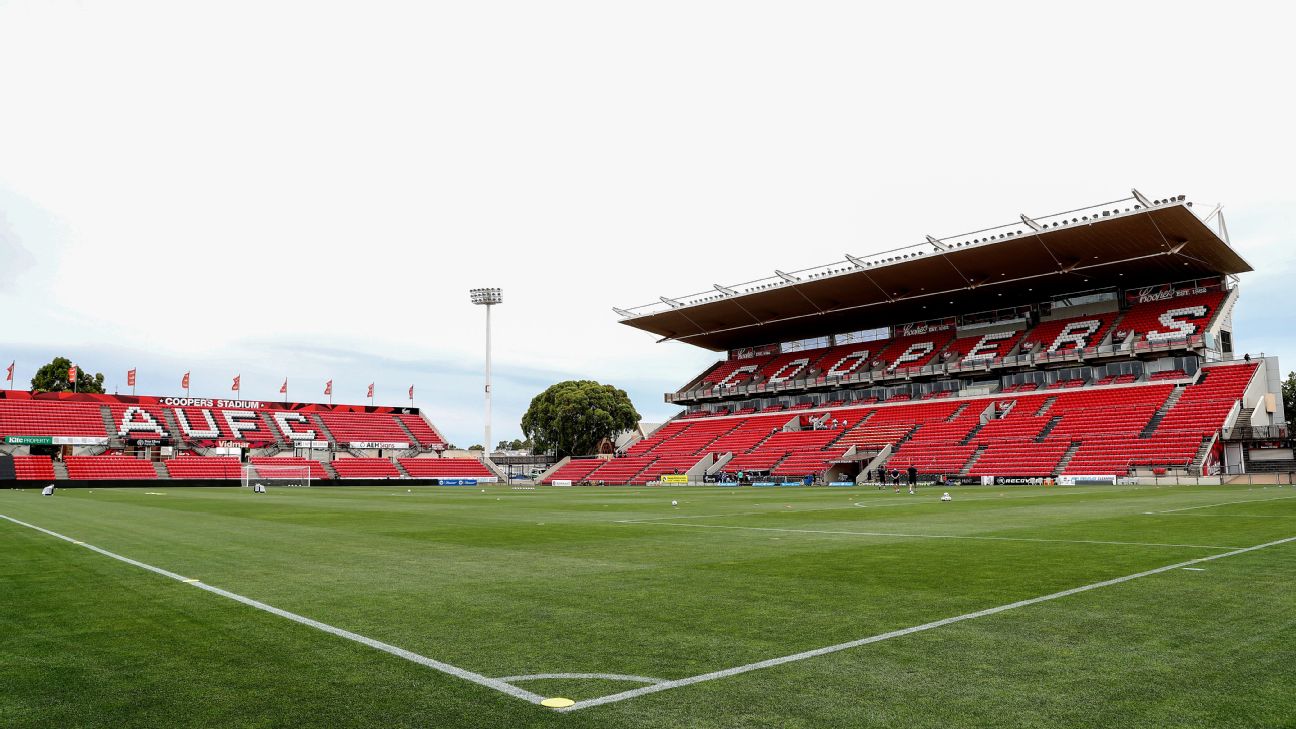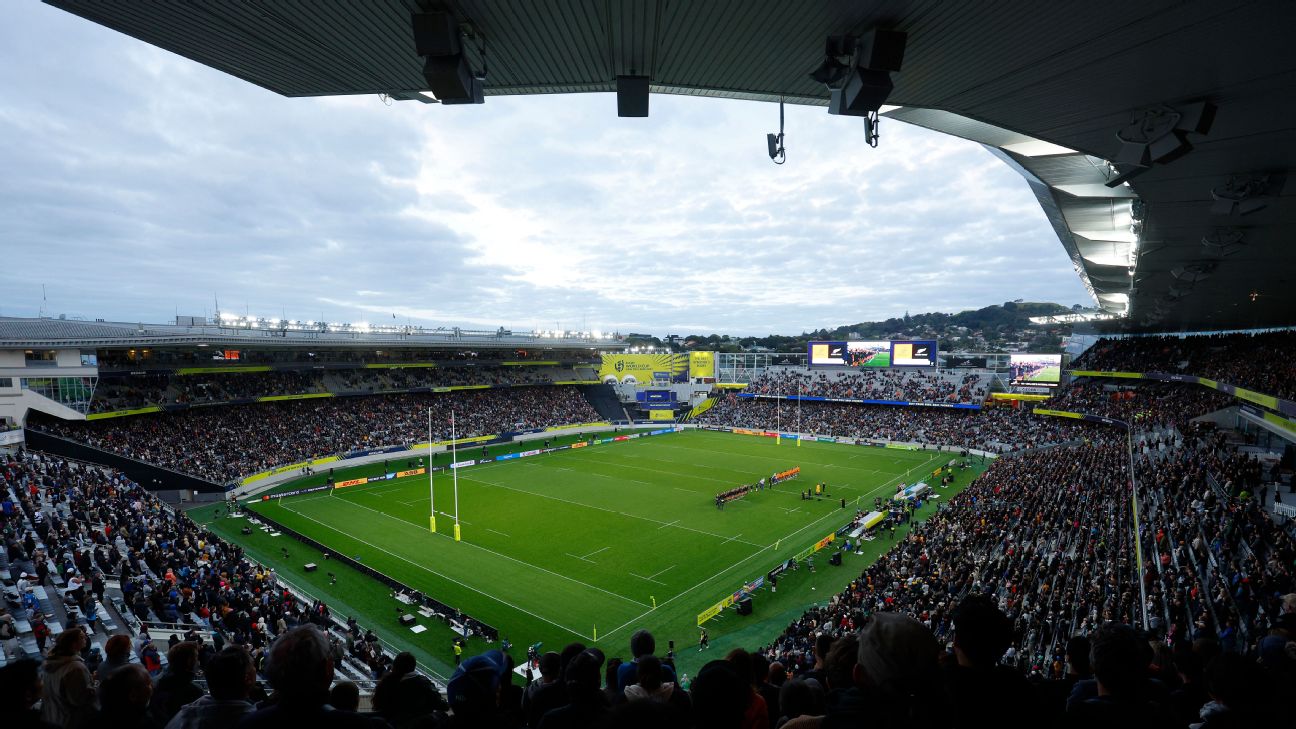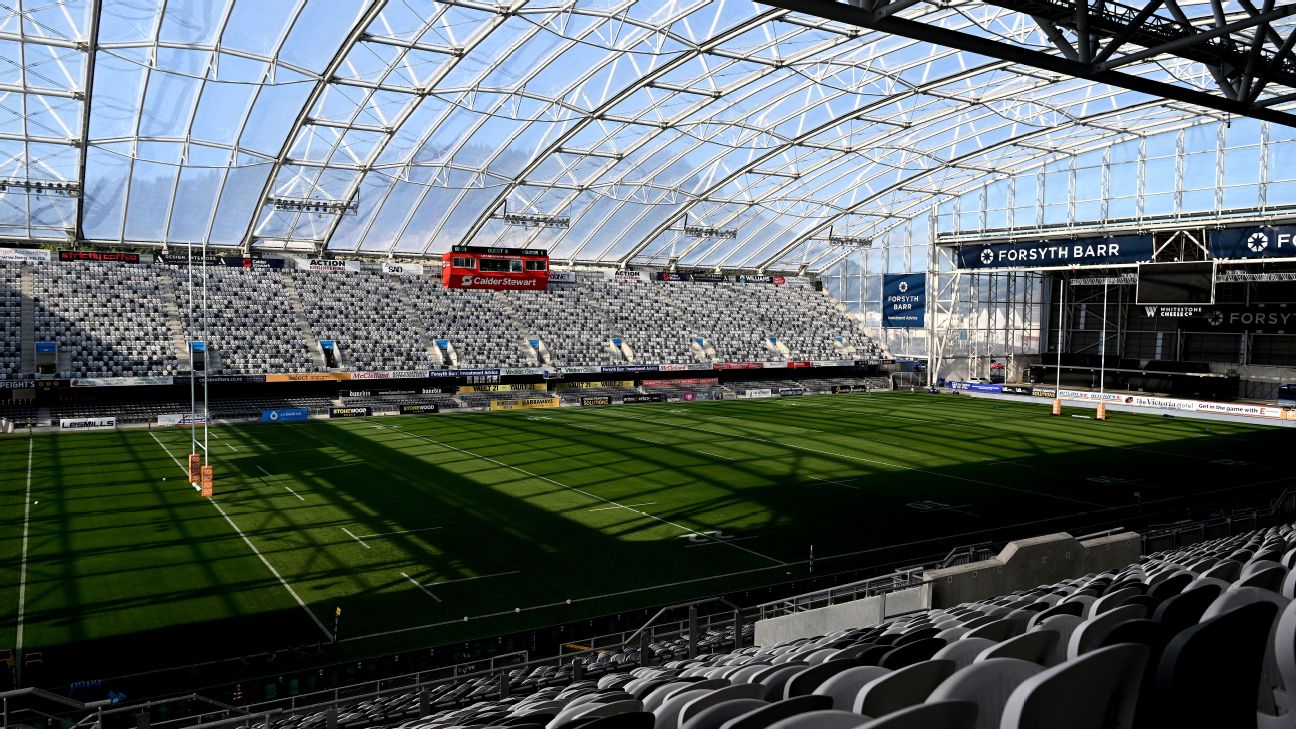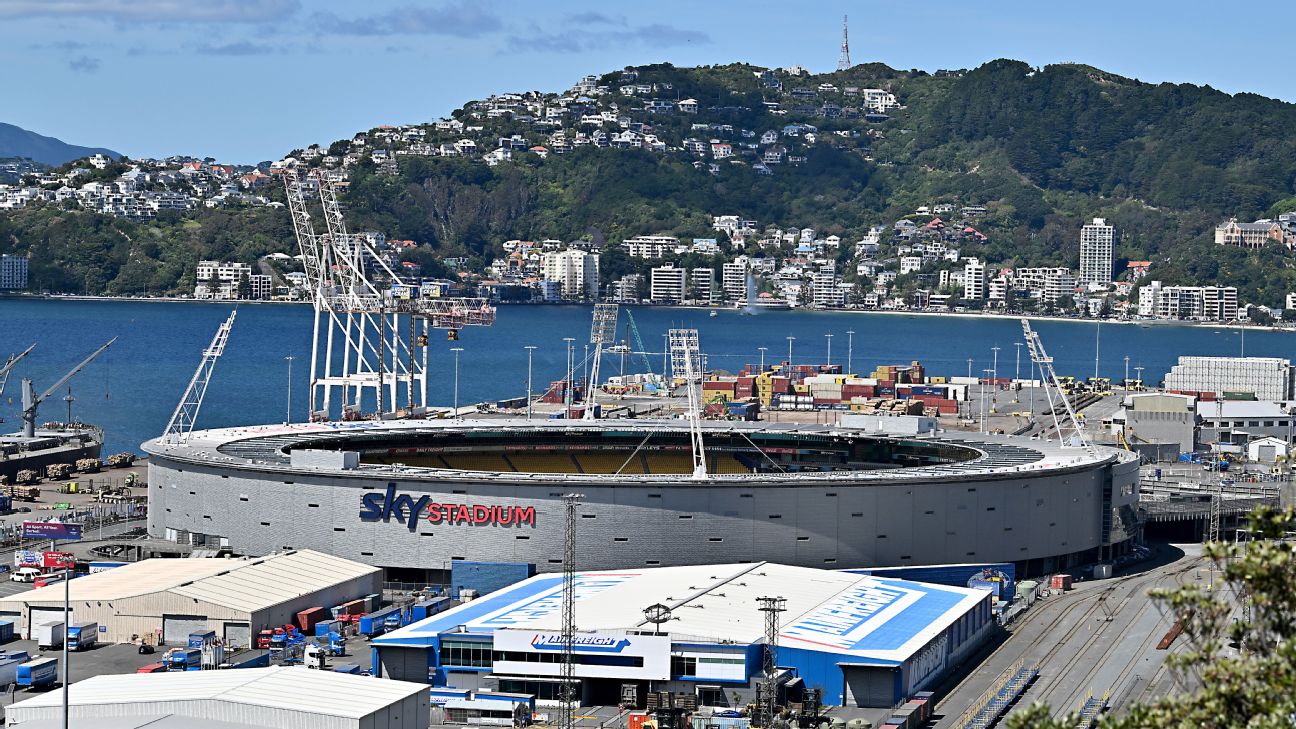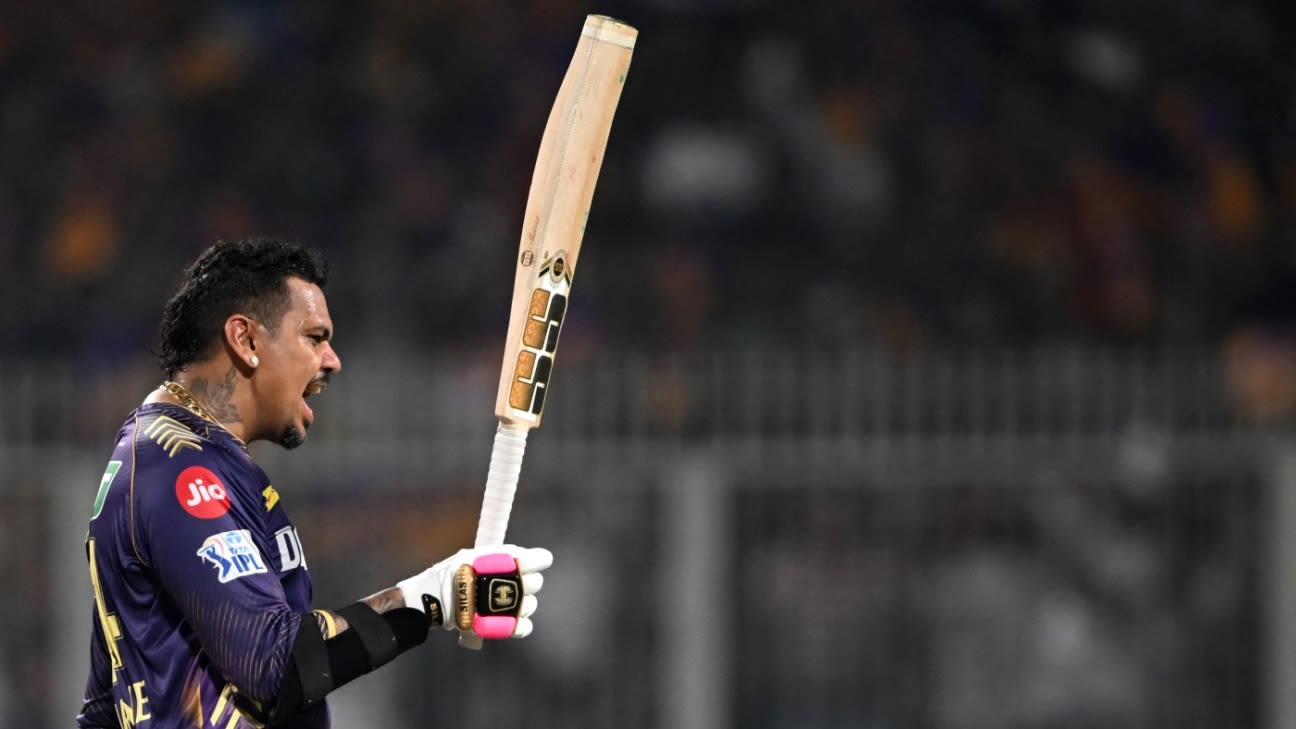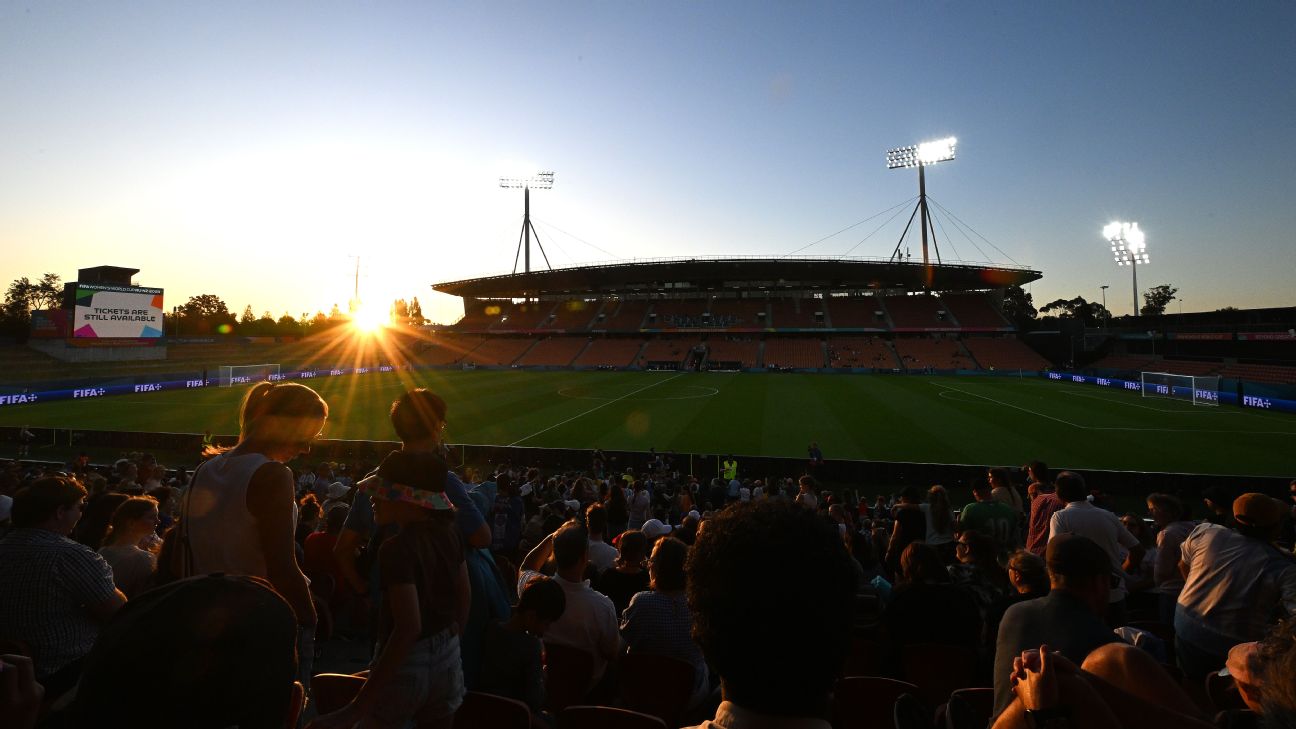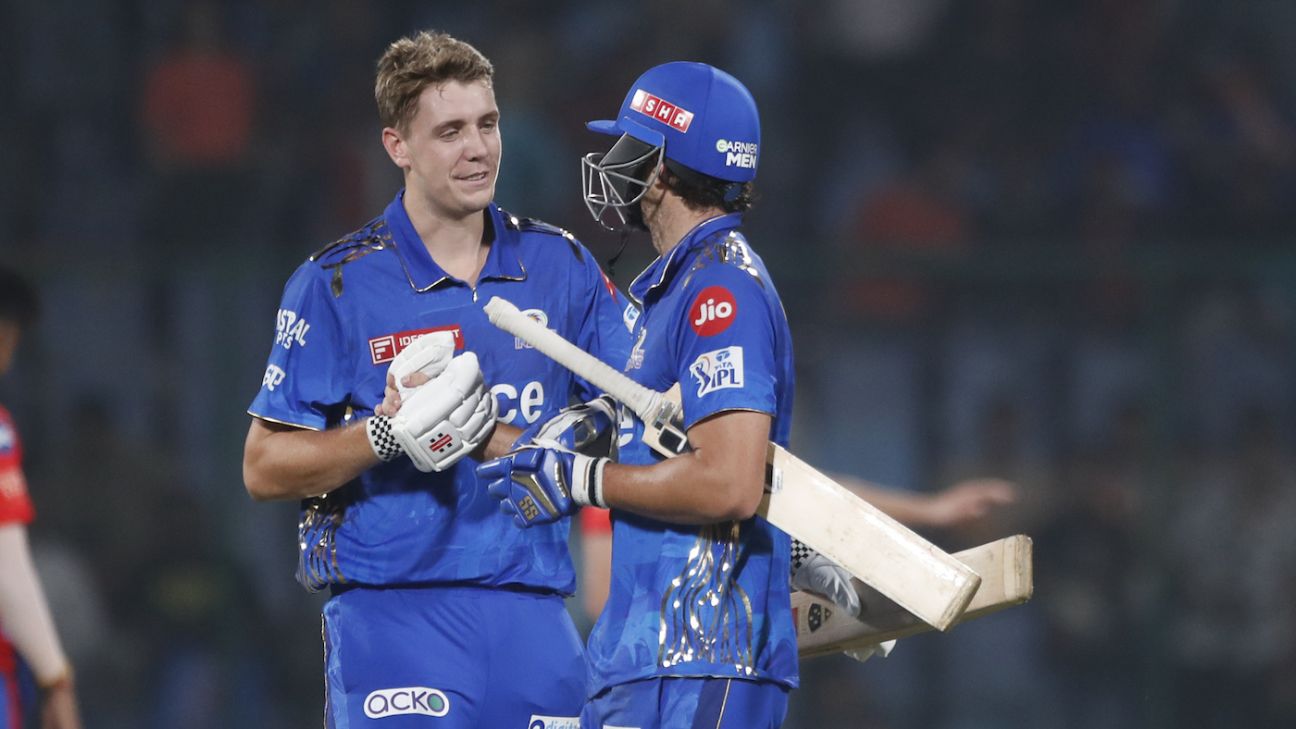The 2023 Women’s World Cup is now 100 days away and counting! The tournament will be unlike any other as co-hosts Australia and New Zealand prepare to welcome 32 teams — the largest-ever field in the first Women’s World Cup held in two countries.
Things kick off July 20 in Auckland, New Zealand, with the action culminating with the final Aug. 20 in Sydney, Australia. In all, the tournament will play out at 10 stadiums in nine cities across the two countries:
-
Australia: Adelaide, Brisbane, Melbourne, Perth, Sydney (two venues)
-
New Zealand: Auckland, Dunedin, Hamilton, Wellington
Throughout this guide, you will see the Australian and New Zealand city names you are familiar with as well as some names you might not know. That is because this World Cup uses the traditional names of the host cities in Maori and the languages of the First Nations people around Australia, which we have also included. In addition, the official tournament branding includes Maori and Indigenous Australian motifs, designs and language throughout.
Below are snapshots for each stadium, including major events that have occurred at them.
– Women’s World Cup bracket and fixtures schedule
Venues in Australia
Sydney (Gadigal)
-
Venue: Accor Stadium, also known as Stadium Australia
-
Location: Edwin Flack Ave, Sydney Olympic Park NSW 2127
-
Capacity: 83,500
-
When did it open: 1999
-
Pro teams that play here: Canterbury-Bankstown Bulldogs (rugby league), South Sydney Rabbitohs (rugby league)
-
World Cup fixtures: Group stage, round of 16, quarterfinal, semifinal, final
Stadium Australia is no stranger to big events or pivotal moments in Australian football history. Situated at Sydney Olympic Park, the stadium has been the scene for other international sporting events prior to the Women’s World Cup. It currently holds the record for the biggest women’s football match attendance in Australia, when the Matildas hosted the United States in November 2021, a record that is sure to be broken by either the inaugural match of the tournament (Australia vs. Republic of Ireland) or the Women’s World Cup final.
The precinct is home to several stadiums that served a purpose during the Olympics and are still used to this day for tennis, netball and basketball, among other sports. It is serviced by the Olympic Park train station, which is a 30-minute ride from Central in the heart of Sydney. Buses and ferries are also available with extra services put on for major events. —Lordanic
Major events hosted here: Unveiled as the centrepiece stadium for the Sydney 2000 Olympics, it was the scene for the lighting of the cauldron by Australian superstar track athlete Cathy Freeman. It was also the venue where the Socceroos broke their 32-year men’s World Cup drought by qualifying for 2006 edition in Germany via a penalty shootout against Uruguay, and the scene of the men’s national team’s first-ever Asian Cup win in 2015.
Sydney (Gadigal)
-
Venue: Allianz Stadium, also known as Sydney Football Stadium
-
Location: Driver Avenue, Moore Park NSW 2021
-
Capacity: 42,512
-
When did it open: 2022
-
Pro teams that play here: Sydney FC (soccer/football), Sydney Roosters (rugby league), NSW Waratahs (rugby union)
-
World Cup fixtures: Group stage, round of 16
The original Sydney Football Stadium (SFS) was opened in 1988 with the new stadium rebuilt on the site of the original, opening in August 2022. One of largest rectangular venues in Australia, the stadium is regularly used for domestic football, rugby league and rugby union and has also played host to international sports matches. It is located next to the famous Sydney Cricket Ground and is the headquarters for Rugby Australia and the National Rugby League.
It is located 1.8 kilometres away from Central station, equating to a 25-minute walk with a bit of a hill. It is better serviced by the light rail, which takes you right to the precinct, and by buses. –Lordanic
Major events hosted here: The newness of the stadium means the most significant event that has been hosted there so far is a pair of Elton John concerts in January 2023. The old stadium played host to the women’s final of the Olympic football tournament in 2000, was graced by Diego Maradona in a World Cup qualifier in 1993 and has hosted concerts from the likes of U2 and Bon Jovi to Taylor Swift and Eminem.
Melbourne (Naarm)
-
Venue: AAMI Park, also known as Melbourne Rectangular Stadium
-
Location: Olympic Blvd, Melbourne VIC 3000
-
Capacity: 30,052
-
When did it open: 2010
-
Pro teams that play here: Melbourne Rebels (rugby union), Melbourne Storm (rugby league), Melbourne Victory (soccer/football), Melbourne City (soccer/football), Western United (soccer/football)
-
World Cup fixtures: Group stage, round of 16
Built next to the site of Melbourne’s historic Olympic Park Stadium, AAMI Park was intended to provide Melbourne with a purpose-built rectangular stadium that could serve as an appropriate home for its teams that didn’t play on the large ovals of dominant code Australian Rules. Initially planned as a 20,000-seater, an extra 10,000 was added, in part, thanks to the large crowds that Melbourne Victory were attracting in their formative years, and it has since gone on to be recognised as among the best places to watch football in the country.
The stadium is located in the heart of Melbourne’s sporting precinct near the centre of the city; across the road from Grand Slam tennis host Rod Laver Arena and sitting in the shadow of the venerable Melbourne Cricket Ground. Parking is limited and can get pricey quite quickly, but the stadium is a short walk from Richmond and Jolimont train stations and is serviced by a nearby tram stop. Alternatively, it’s a 20-minute stroll alongside the Yarra River to walk there from the central Flinders Street train station hub. –Lynch
Major events hosted here: AAMI Park played host to the opening ceremony of the 2015 AFC Asian Cup as well as multiple A-League Men and Women Grand Finals. Outside of football, the venue has also played host to Anzac Tests in Rugby League and tours by the British and Irish Lions in union. Also a concert venue, Taylor Swift attracted 98,136 fans through the gates across three sold-out shows as part of her 1989 World Tour in 2015.
Brisbane (Meaanjin)
-
Venue: Suncorp Stadium, also known as Brisbane Stadium
-
Location: 40 Castlemaine St, Milton QLD 4064
-
Capacity: 52,263
-
When did it open: 1914
-
Pro teams that play here: Brisbane Broncos (rugby league), Queensland Reds (rugby union)
-
World Cup fixtures: Group stage, round of 16, quarterfinal, third-place game
Brisbane Stadium, commercially known as Suncorp Stadium and colloquially known as Lang Park, is built on the site of Brisbane’s first cemetery. With over 100 years of history, the venue has witnessed some incredible spectacles across sport and music and was redeveloped in 2003. The stadium has six bronze statues placed around the venue, commemorating the rugby league and rugby union legends who have made this stadium their own.
It is well serviced by public transport with Roma St. and Milton stations within one kilometre of the venue — Roma St. is closer to Caxton street, which has plenty of establishments for pregame and postgame festivities. There are also buses to the stadium. Brisbane Stadium has no public parking. —Lordanic
Major events hosted here: Brisbane Stadium has hosted Rugby League World Cups, Rugby World Cups and some of the matches at the 2015 Asian Cup. It has also hosted several big concerts and the “Battle of Brisbane” fight between Manny Pacquiao and Australian fighter Jeff Horn. It will also play a role in the 2032 Olympics, with Brisbane selected as the host city.
Perth (Boorloo)
-
Venue: HBF Park, also known as Perth Rectangular Stadium
-
Location: 310 Pier St, Perth WA 6000
-
Capacity: 22,225
-
When did it open: 1920
-
Pro teams that play here: Western Force (rugby union), Perth Glory (soccer/football)
-
World Cup fixtures: Group stage
Built on a paddock reclaimed from Stone’s Lake, the venue originally known as Perth Oval has been the host to sporting events in Perth for over a century and its entrance gates, built in the 1930s, have been heritage listed. As the city’s only professional rectangular stadium, Perth Rectangular Stadium has received extensive renovations to prepare for the FIFA Women’s World Cup, including upgrades to its lighting, new dressing rooms and an upgrade to the playing surface, as well as temporary amenities in place for the Women’s World Cup.
Located close to the centre of Perth, the stadium is a short walk from the East Perth and Mciver train stations. –Lynch
Major events hosted here: Major events hosted here: As one might have guessed from its former name, the venue wasn’t always rectangular: previously playing host to Australian Rules side East Perth. The Women’s World Cup will mark the first time competitive women’s fixtures have been played at the ground, but it has already played host to men’s internationals in football and rugby. Its record attendance was an Ed Sheeran concert in 2015.
Adelaide (Tarntanya)
-
Venue: Coopers Stadium, also known as Hindmarsh Stadium
-
Location: Holden St., Hindmarsh SA 5007
-
Capacity: 18,435
-
When did it open: 1960
-
Pro teams that play here: Adelaide United (soccer/football)
-
World Cup fixtures: Group stage, round of 16
Widely considered one of the best venues in Australia to watch football, Hindmarsh Stadium’s intimate surroundings mean that it doesn’t need a lot of people inside it before the atmosphere gets raucous. Originally the site of an oval that housed Australian Rules side West Torrens Football Club, the venue was converted into its now familiar rectangular shape in the 1960s and has received extensive upgrades for the FIFA Women’s World Cup in the form of improved disability access, a new roof on the Eastern stand and improved corporate facilities.
Situated just on the edge of Adelaide’s CBD, the most stress-free way to get to Hindmarsh — which doesn’t have an on-site lot for matchday parking — is via the tram, which runs between the centre of the city and the nearby Adelaide Entertainment Centre at regular intervals, free of charge. Bodwen train station is also just a short walk away. –Lynch
Major events hosted here: The host of both international rugby and football over the years, Hindmarsh was one of the venues used to stage football matches during the 2000 Sydney Olympics — which saw its footballing events sent out to cities around the country to find suitable venues. It has also played host to three different Australia Cup finals — with its tenants Adelaide United winning all three.
Venues in New Zealand
Auckland (Tāmaki Makaurau)
-
Venue: Eden Park
-
Location: Reimers Avenue, Kingsland, Auckland 1024
-
Capacity: 48,276
-
When did it open: 1900
-
Pro teams that play here: Blues (rugby union)
-
World Cup fixtures: Group stage, round of 16, quarterfinal, semifinal
Eden Park is New Zealand’s national stadium with the ability to host all kinds of sports from rugby union to cricket, rugby league and football. It was built on swampland and has been hosting sport since 1900. It began as a cricket ground and has since played host to both national and domestic sport. The Park was redeveloped for the 2011 Rugby World Cup and boasts world-class, inclusive facilities. Its first taste of international women’s football occurred earlier this year when the Football Ferns hosted the United States in a friendly, attracting a record crowd of 12,721.
The closest train station, Kingsland, is 300 metres away and direct services to Eden Park run from the city centre. There are also bus stops within a one kilometre walk of the stadium. —Lordanic
Major events hosted here: Eden Park is no stranger to international women’s sporting events having hosted the final of the delayed 2021 Rugby World Cup in 2022. New Zealand’s women defeated England in front of 42,579 people. The Park has also hosted cricket World Cup matches, the 1988 Rugby League World Cup final, two Rugby World Cups and will be the site for the opening game of the 2023 Women’s World Cup.
Dunedin (Ōtepoti)
-
Venue: Forsyth Barr Stadium, also known as Dunedin Stadium
-
Location: 130 Anzac Avenue, Central Dunedin, Dunedin 9058
-
Capacity: 28,744
-
When did it open: 2011
-
Pro teams that play here: Highlanders (rugby union)
-
World Cup fixtures: Group stage
After facing initial backlash over its expected cost against limited potential use, Dunedin Stadium has already served as a World Cup venue on two occasions: hosting games during the 2011 Rugby World Cup and the 2015 FIFA U20 World Cup. The only fully covered venue in New Zealand — a bit of a must given the fierce weather that can hit the southern regions of the country — the stadium has earned the nickname “The Glasshouse” thanks to the covering that gives it a similar appearance to a greenhouse.
Built overlooking Dunedin Harbour, the stadium is a roughly 20-minute walk from the centre of a city that styles itself as the wildlife capital of New Zealand, and there are also regular buses. —Lordanic
Major events hosted here: Beyond the 2011 Rugby World Cup and 2015 FIFA U20 World Cup, the venue has played host to New Zealand’s all-conquering All Blacks side on several occasions, as well as touring games from the country’s only representative in a professional soccer league, the Wellington Phoenix. Ed Sheeran packed over 100,000 people into the venue over three days during a tour in 2018.
Wellington (Te Whanganui-a-Tara)
-
Venue: Sky Stadium, also known as Wellington Regional Stadium
-
Location: 105 Waterloo Quay, Pipitea, Wellington 6140
-
Capacity: 39,000
-
When did it open: 2000
-
Pro teams that play here: Wellington Phoenix (soccer/football), Hurricanes (rugby)
-
World Cup fixtures: Group stage, round of 16, quarterfinal
The home of New Zealand football and the site of the All Whites draw with Bahrain that sent the nation to just its second men’s FIFA World Cup in its history, Wellington Regional Stadium has earned the affectionate nickname “The Cake Tin” from Kiwis thanks to its distinctive bowl shape — which allows it to host cricket games during the summer.
Built on reclaimed railway land overlooking Wellington Harbour, the stadium sits on top of the Wellington train station and is smack bang in the middle of Wellington, making it one of the easiest stadiums to access this FIFA Women’s World Cup. –Lynch
Major events hosted here: Like many venues being used by New Zealand during the FIFA Women’s World Cup, Wellington Regional Stadium already has a history on the world stage: playing host to games during the 2011 Rugby World Cup and the 2015 Cricket World Cup. Its attendance record was set back in 2019 when 46,474 fans packed in to watch Eminem perform live.
Hamilton (Kirikiriroa)
-
Venue: FMG Stadium Waikato
-
Location: 128 Seddon Road, Frankton, Hamilton 3204
-
Capacity: 25,111
-
When did it open: 2002
-
Pro teams that play here: Chiefs (rugby union)
-
World Cup fixtures: Group stage
Waikato Stadium has already played an important part in the story of this FIFA Women’s World Cup: the stadium was the host for two preliminary qualifiers during the interconfederation playoffs before then serving as the site for Portugal’s dramatic win over Cameroon to book their first-ever appearance on the global stage. Serving as a purely rectangular stadium — unlike several other New Zealand venues that are built as ovals to also host cricket — and featuring stands right on top of the action, it’s regarded as one of the best venues to watch football in the country.
Located a roughly 20-minute walk from Hamilton’s CBD, the stadium actively encourages patrons to cycle to the venue and use bicycle racks at the rear of the Brain Perry Stand. For those without two-wheeled transportation, a free shuttle bus operates to get patrons to the ground. –Lynch
Major events hosted here: Waikato Stadium has already played host to games in the FIFA U17 Women’s World Cup in 2008 — USWNT star Samantha Mewis playing at the venue — the 2015 FIFA U20 World Cup and the 2011 Rugby World Cup.

